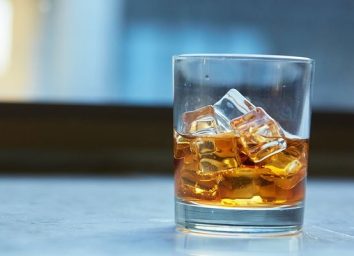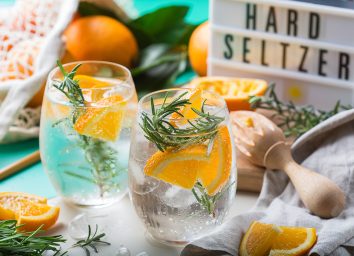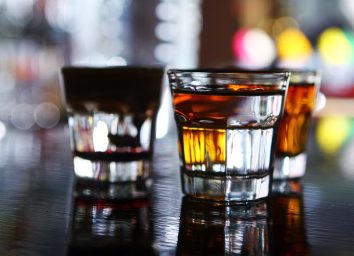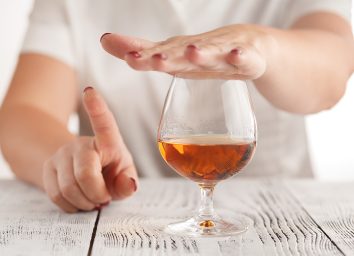10 Alcohol Myths You Should Just Stop Believing
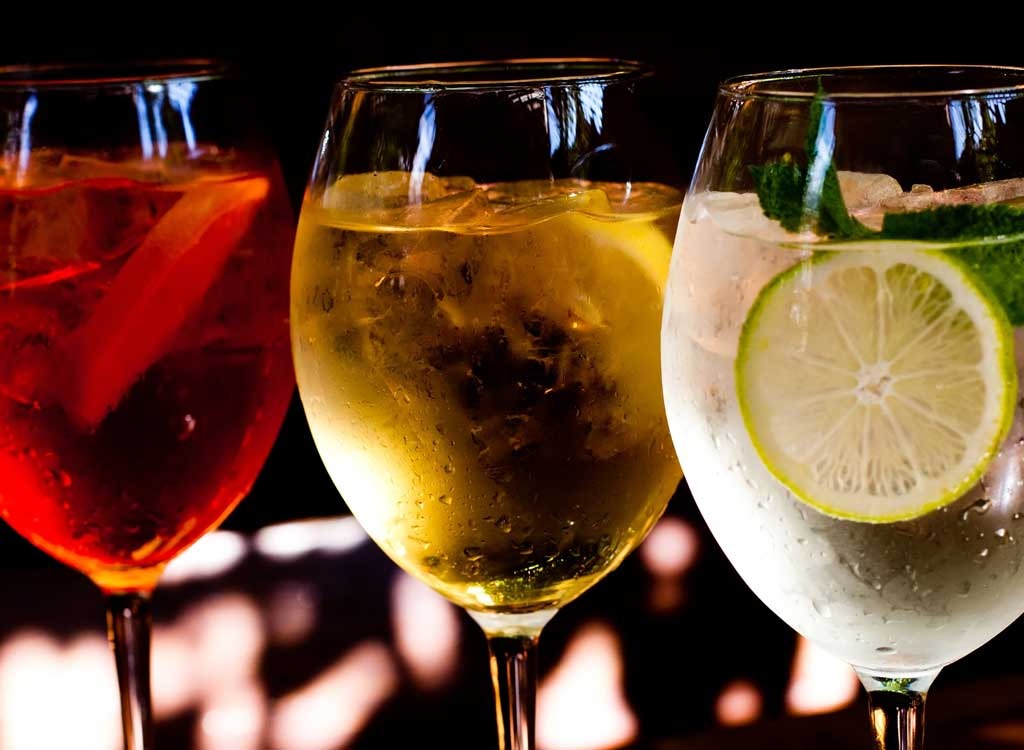
From filling your belly with pasta ahead of a night out to improve your tolerance to drinking raw egg yolks to get over a hangover, most people will believe all kinds of things when it comes to trying to control the effects alcohol can have on your body. But—plot twist—not all of these preconceptions are actually true. They’re simply just alcohol myths.
And while you’re spending more time at home most likely sipping on wine or your favorite cocktail each night, you might find yourself thinking of those classic theories you always thought to be true. Well, sorry to break it to you, but it’s time to stop believing these myths once and for all. Hey, we’re just here to help out!
Here are 10 of the most common alcohol-related myths, debunked. And if you find yourself suffering from the (sometimes inevitable) hangover, these are the worst things to do if you have a hangover.
Beer before liquor, never sicker.
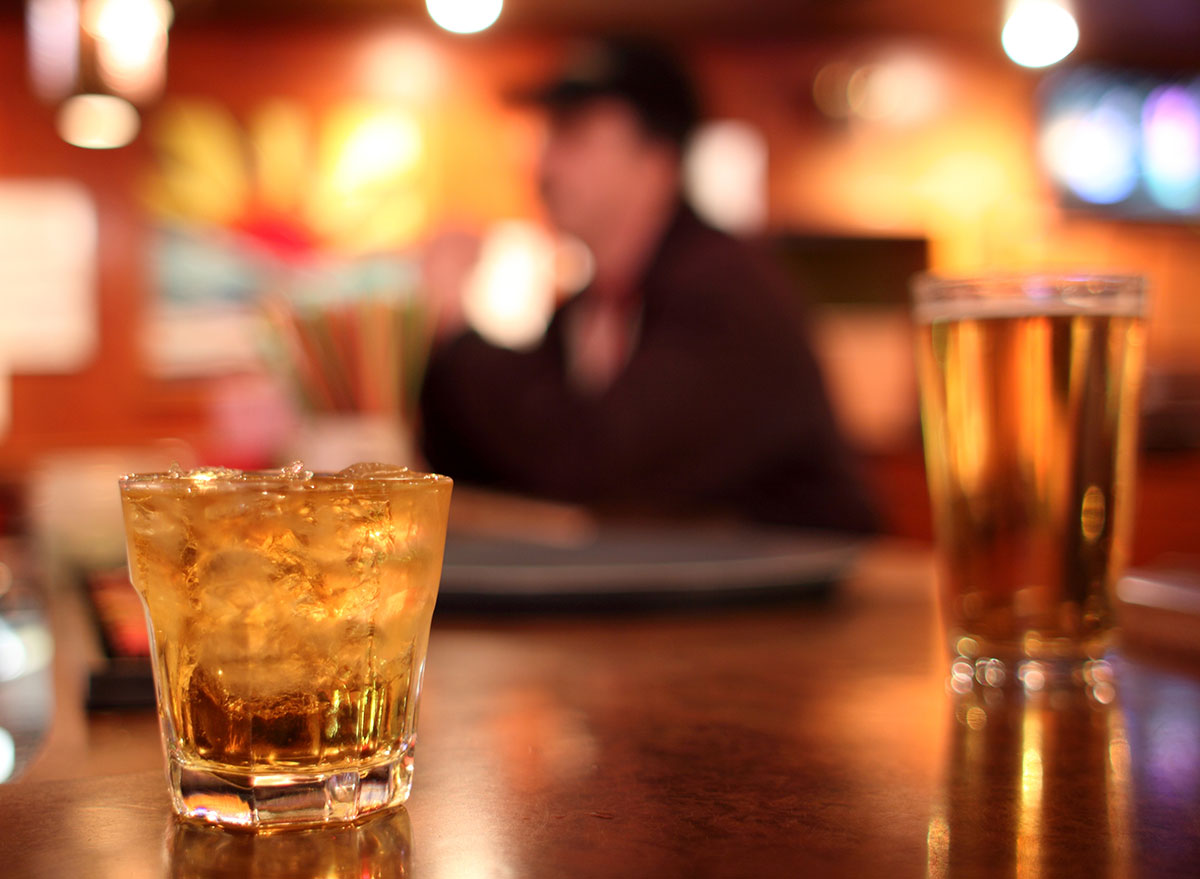
This common rhyming phrase is a classic old wives’ tale many believe: that drinking hard liquor at the beginning of the night is fine, but finishing the evening with shots will make you sick as a dog. But according to our experts, while 2 a.m. tequila may indeed lead to the spins, drink order has nothing to do it.
“The perception that mixing alcoholic drinks gets us drunker is due to the fact that when we mix drinks, we’re typically drinking in greater volumes,” says Jamie Bacharach, licensed medical acupuncturist and health and wellness expert. “The truth is that there is no scientific evidence supporting the idea that mixing drinks makes people drunker.”
So feel free to drink in whatever order you like—just drink a responsible amount to stave off a hangover.
Alcohol is a great nightcap.
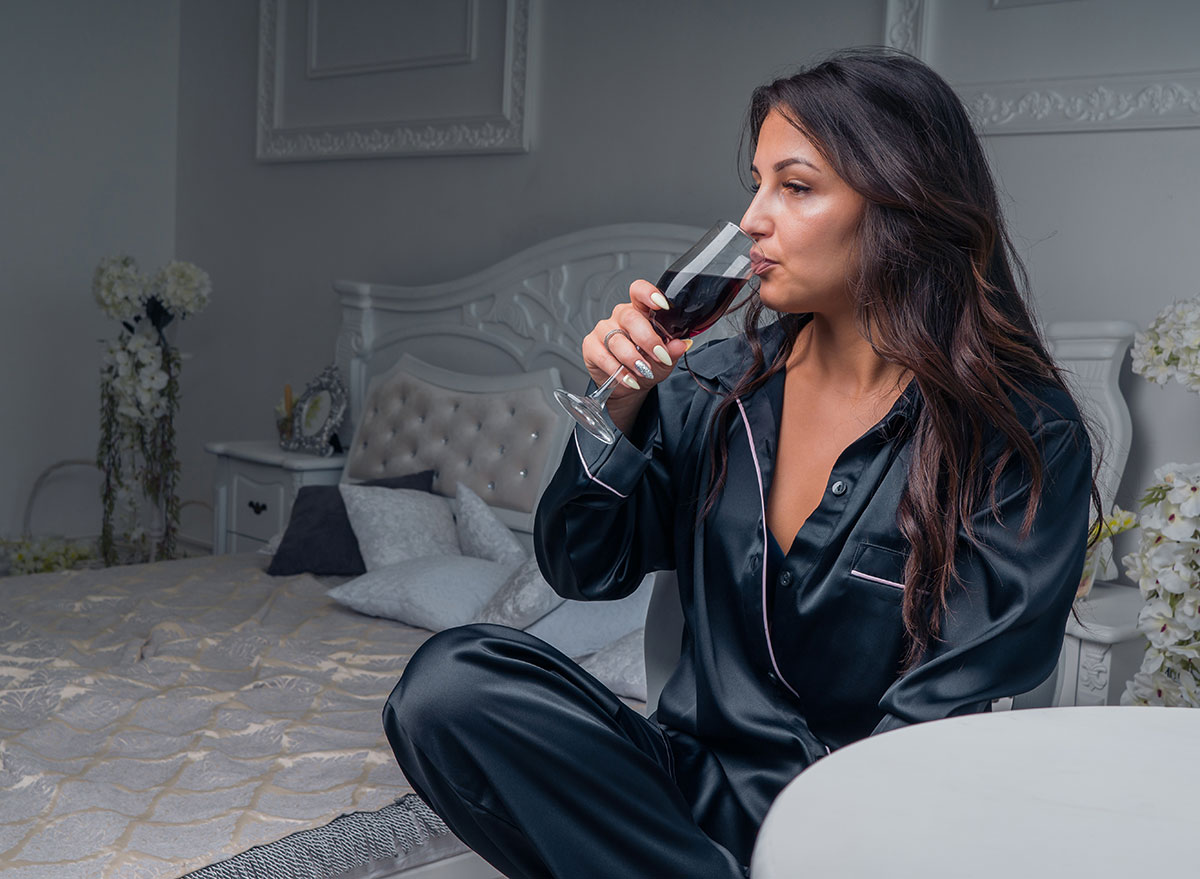
Alcohol certainly knocks you out more quickly, but don’t think you’re getting better rest if you indulge in a late-night glass of wine. In fact, this couldn’t be further from the truth!
“Alcohol disrupts deep sleep,” says Amanda A. Kostro Miller, RD, LDN, a member of the advisory board for Smart Healthy Living, “so not only may you be hungover after a night of drinking, you may also feel sick and lack a good night’s sleep!”
Women can’t drink as much as men because they’re smaller.

There is some truth to this myth: while men and women do indeed process alcohol at different rates, it’s not just because women are smaller.
“Women have less of an enzyme (alcohol dehydrogenase) that breaks down alcohol before absorption,” says Melissa Morris a fitness and healthy living expert for TheTruthAboutInsurance.com with an MS in exercise science. This, combined with naturally lower body water percentages, means that women feel the effects of alcohol more than men, even when they’ve had less to drink.
If you don’t drink during the week, you can let loose during the weekend.
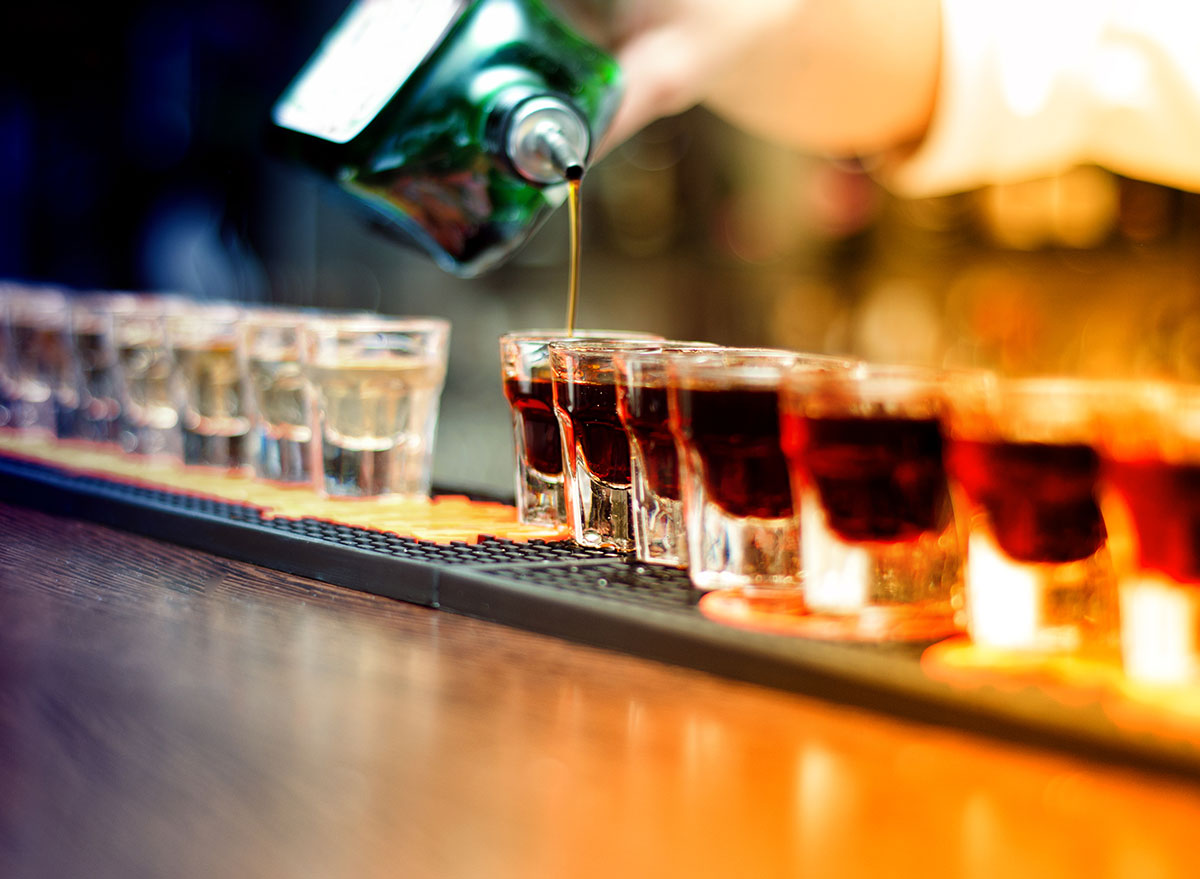
Much like your phone data, you can’t “roll” unused drinks over from days when you didn’t drink them. Moderate alcohol consumption is one drink per day for women and two for men, and according to Miller, “The recommendations for alcohol stay the same, regardless if you did or did not drink during the days before.”
“Binge drinking affects your body differently than having one drink per night,” she says. So don’t try to use up unused Monday evening drinks on a Saturday night!
You should drink red wine for antioxidants.
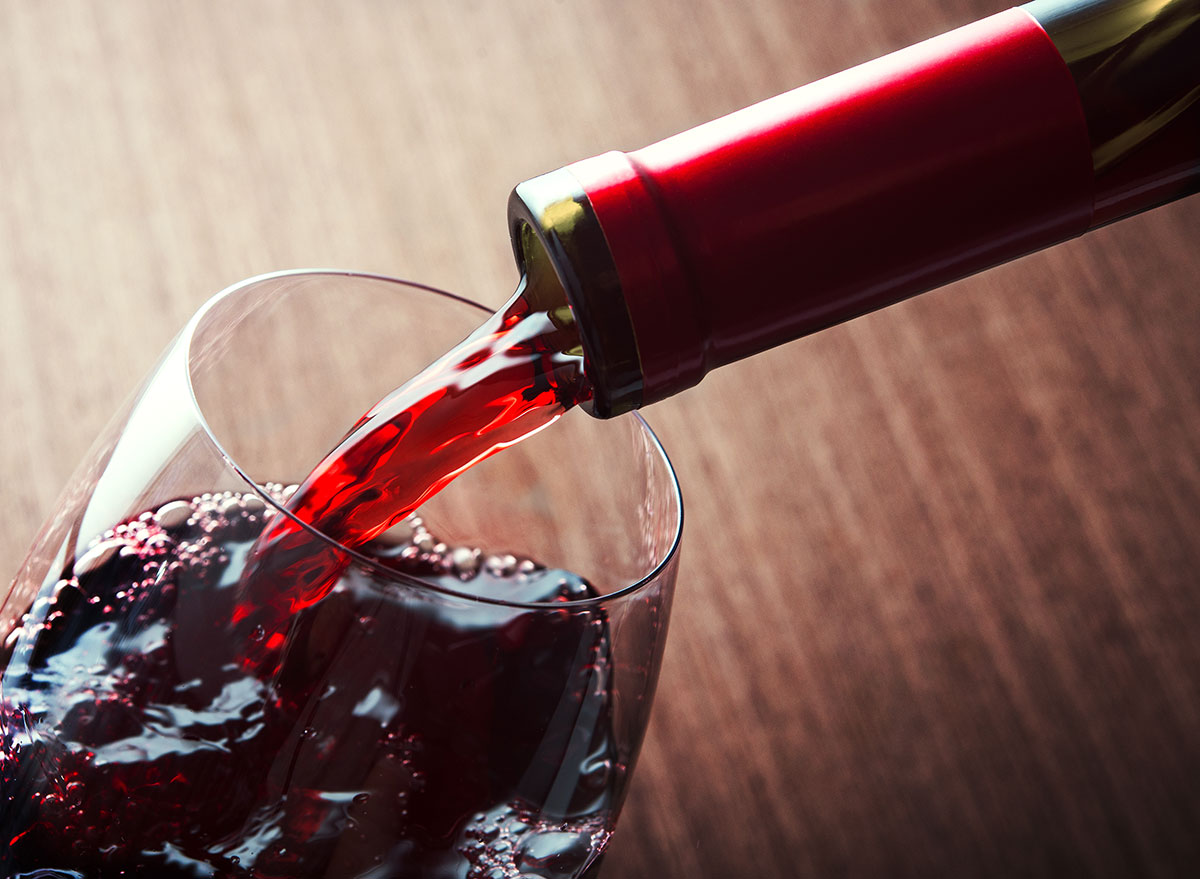
While red wine does indeed contain antioxidants, this alone is not a good reason to indulge in it. The antioxidants found in red wine are also found in other red and purple foods including blueberries.
“Red wine can be a part of an overall healthy diet,” says Miller. “However, if you’re not an alcohol drinker, it doesn’t mean that you NEED to drink red wine to be healthy.”
Eating a big meal will stave off a hangover.
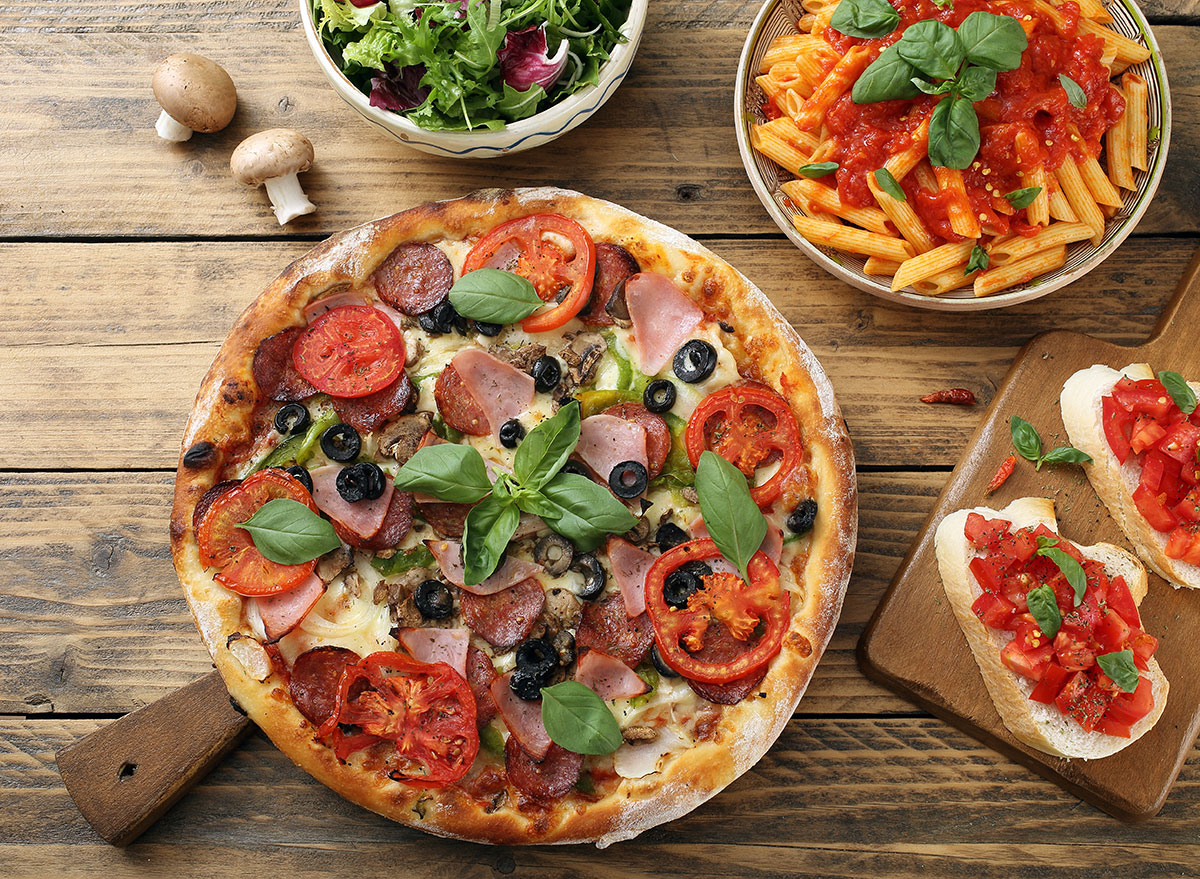
Many people believe that food—specifically carbs—will help keep you sober or even prevent an unfortunate hangover the next day. But for Lisa Richards, nutritionist and author of The Candida Diet, not only is this inaccurate, coming home to a huge late-night meal could even be dangerous.
“Loading your stomach with pasta before bed while drunk makes you more likely to vomit in the night,” she says. “And if you’re fast asleep from drunkenness, this could cause you to choke.”
Our experts do note, however, that while carbs might not help, fat can, provided it’s eaten before drinking rather than after. This, explains Dr. Ralph E. Holsworth, D.O., director of clinical and scientific research at Essentia Water, is due to the fact that fat lines your intestines, making it more difficult for alcohol to be absorbed.
And according to Dr. Tarek Hassanein, MD, director of Southern California Liver Centers, fat also has an effect on the way that the liver metabolizes alcohol. Alcohol naturally converts to toxic metabolites in the liver, which are then distributed throughout the body, contributing to hangover systems. But, he explains, the increased consumption of fat stimulates bile production, which can bind to metabolites and reduce their effect. Essentially, you won’t feel those horrid hangover side effects, at least not as intensely.
Dr. Joseph Fisher, MS, MD, Ph.D., a medical scientist, and founder of SOBAR recommends eating between five and fifteen minutes before drinking, less so while drinking, and even less after.
“I would suggest eating at least 200 calories of food right before drinking to moderate the ’empty stomach’ effect of drinking,” he says.
And if you are going to eat after your night out, go for eggs, suggests Lia Lee, owner of UNLIT, The Hangover Recovery Drink.
“Eggs are the single most potent source of Cysteine, an amino acid which supports another amino acid, L-Glutathione,” she says. “Glutathione supports the ability for your body to detoxify itself fast.”
You can sweat out alcohol.
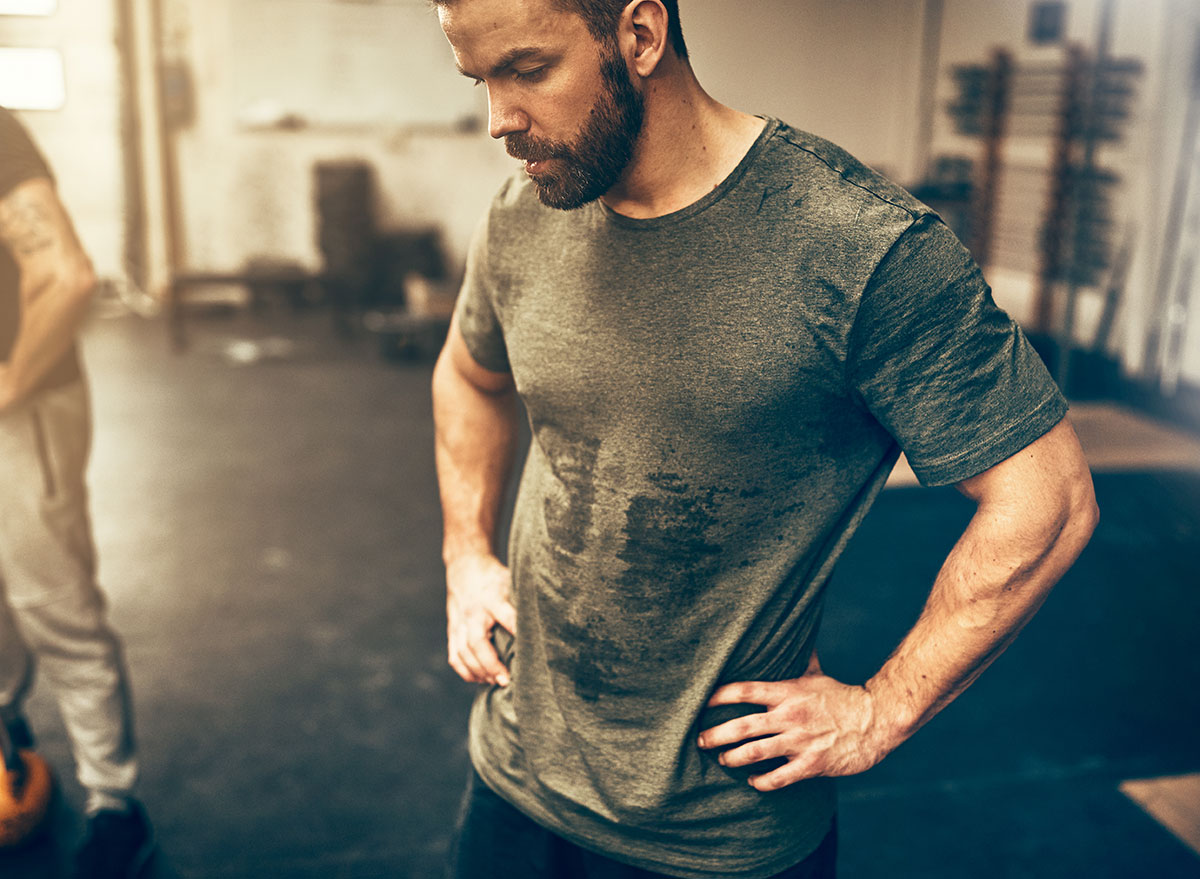
Some people assume that by sweating, you get the alcohol out of your systems faster. But opting to exercise or visit a sauna while hungover is not a good idea, according to Dr. Pedram Kordrostami, MD, founder of AfterDrink.
“Inflammation, dehydration, and a lack of sleep all contribute to your hangover symptoms,” he says. “By the time you are hungover, the damage by alcohol has already been done. Your body is in a fragile state and vigorous exercise is an unnecessary additional stress on your already weakened body. Using a sauna, similarly to exercise, puts additional stress on your body and is not recommended. In fact, it could be dangerous if the extreme heat causes you to collapse when you’re already dehydrated because of alcohol.”
And in case you were wondering, this is What Happens To Your Body When You Give Up Alcohol.
Drinking a hair of the dog will make you feel better.
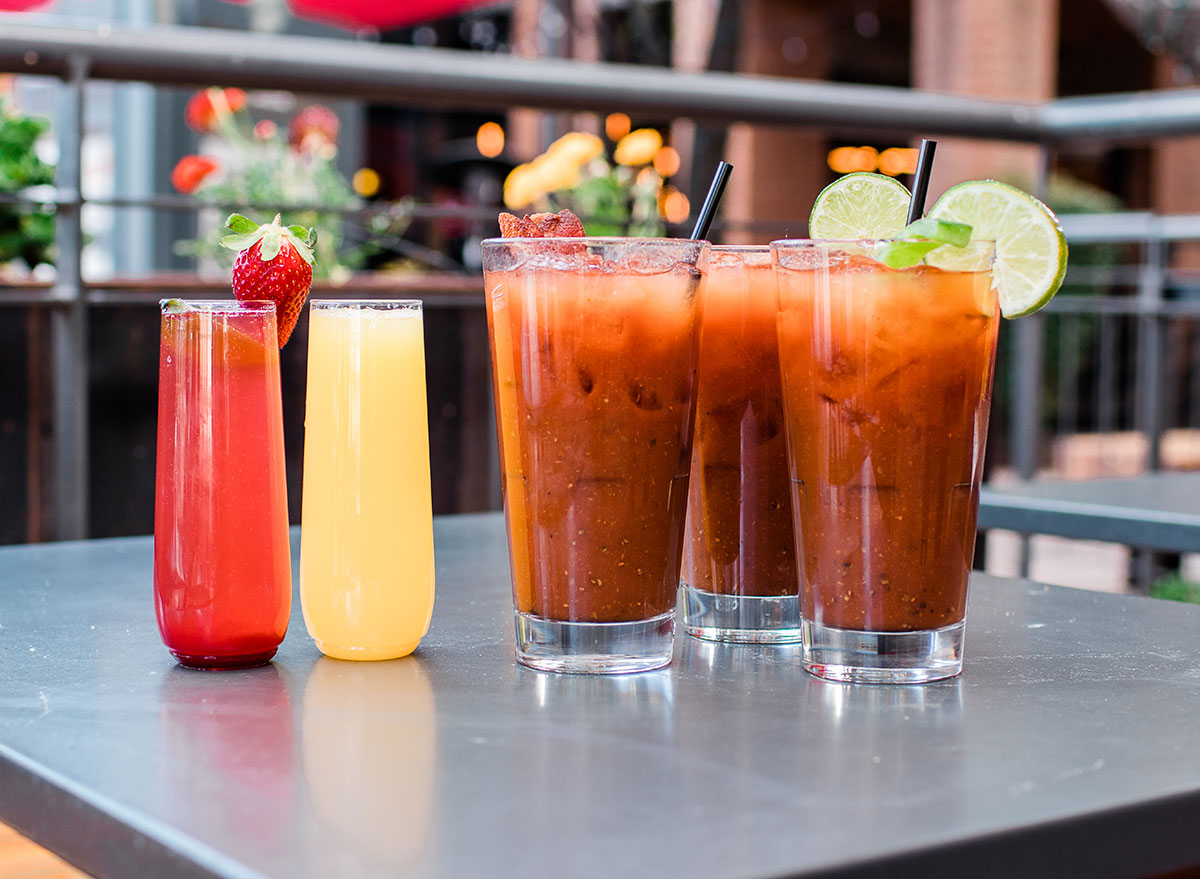
Lots of folks try to stave off a hangover by indulging in “the hair of the dog,” or another alcoholic drink the morning after a night out. But according to Richards, a morning-after mimosa will “only postpone a hangover” by keeping your blood alcohol level from hitting zero, at which point the worst hangover symptoms begin.
Drinking more alcohol also further dehydrates you, contributing to an even worse hangover. Choose instead water or an electrolyte-rich recovery drink which will rehydrate you.
Hanxiety is all in your head.

A relatively new word to describe a common hangover phenomenon, hanxiety is the feeling of increased anxiety following a night of heavy alcohol consumption. And according to Richards, it’s got physiological sources, so yes, it’s very real.
“It is a result of [a] temporary increase of dopamine triggered by alcohol,” she says. “When dopamine drops, it is quick and can result in feelings of anxiety.”
“When under the influence of alcohol, people become numb to the typical stress or emotional pain they deal with thanks to the alcohol-driven release of endorphins,” says Bacharach. “When these endorphins subside, we become confronted once again with the reality of our life stress and difficulties, triggering anxiety in many.”
Bacharach adds that hanxiety can also be caused by mild withdrawal.
“This can manifest in anxiousness, or jitters, a sort of anxiety that will not subside until the body has finished cleansing itself,” she says.
And to try and keep your mind as clear as possible, here are 15 Foods That Make Your Depression or Anxiety Worse.
Coffee sobers you up.
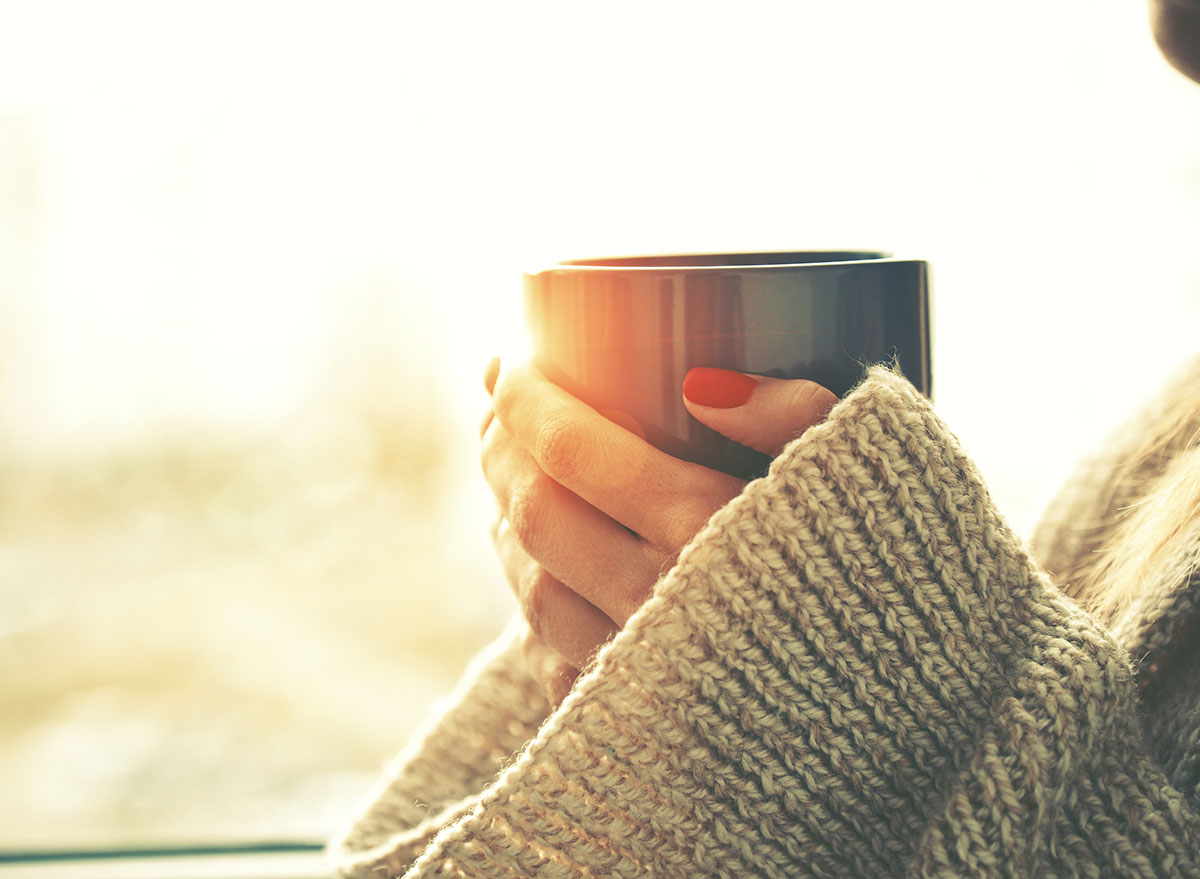
No matter how much more alert you feel, coffee and caffeine can’t actually help you sober up, according to our experts.
“Alcohol is metabolized in your liver by an enzyme called alcohol dehydrogenase and caffeine has no effect on this,” says Kordrostami.
Attempting to sober up quickly with coffee can even be dangerous, according to Richards, as it can further dehydrate you. Instead of indulging in a late-night cup of coffee, it’s better to just rehydrate with water and sleep it off.
But if you’re thinking about giving up those cups of Joe for good, here’s What Happens to Your Body When You Stop Drinking Coffee.
